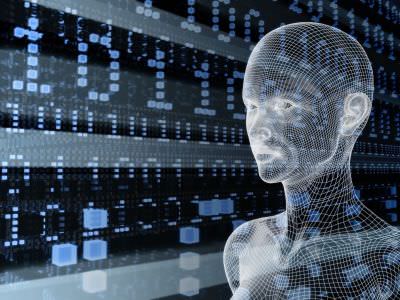Contemplating the rapid transformation brought about by ChatGPT technology is truly fascinating.
Have you ever pondered the fate of phone booths that once adorned street corners? Were they trotted off to junkyards, and perhaps will one day be showcased in museums?
Or have you marveled at the daunting journey of sending astronauts to the moon using technology far less advanced than the iPhone? Even in the futuristic world of George Jetson, we imagined that Cathode Ray Tube technology was deemed obsolete.
The list of evolution tales is extensive.
It evokes parallels to iconic innovations that swiftly reshaped our world, much like the iPhone’s impact, aerodynamics technology’s evolutions in air travel, or the transition from horse and buggy to automobiles.
The pace of change has been remarkable.
ChatGPT technology, coupled with advancements in Natural Language Processing (NLP), Natural Language Understanding (NLU), Machine Learning (ML), and Generative AI, is revolutionizing our world in ways that surpass anything we’ve seen before.
But what does this mean?
The Impact of ChatGPT

ChatGPT technology, standing at the forefront of human-computer interaction, has ignited a transformative era akin to the advent of the iPhone.
The introduction of ChatGPT and its impact on human-computer interaction represents a significant milestone in the ongoing evolution of our relationship with technology.
Just as the iPhone revolutionized our lives by combining many functions within a single device, altering how we communicate, access information, and engage with entertainment, ChatGPT technology has undertaken a similar amalgamation of diverse tasks, enhancing how we interact with digital systems.
It encompasses answering queries, controlling smart devices, and offering information and entertainment, all through natural language interactions. This evolution has seamlessly integrated technology into our daily lives, rendering it more intuitive and accessible.
This shift has the potential to reshape our approach to technology and the capabilities we harness in our daily lives, marking a noteworthy juncture in the ongoing evolution of human-machine interactions.
I’m (jokingly) convinced we have mental hardwiring donned from the ‘Planet of The Apes’ movies. It causes an unconscious fear that is cautious about the implications of rapid technological advancements, especially when it replaces humans.
Much like the world depicted in ‘Planet of the Apes,’ the evolution of technology has reshaped our society in profound and unexpected ways.
The rise of the apes represented a dramatic shift in power dynamics, challenging the established order.
Similarly, technology has brought about a paradigm shift in how we live, communicate, and work.
The relentless march of technological advancement, like the ape revolution, has altered the balance of power and transformed our world.
It serves as a poignant reminder of the need for responsible and considerate development, as the consequences of unchecked progress, whether in fiction or reality, can be far-reaching and sometimes unforeseeable.
But still, there is an innate fear of how humans will interact with machines and the implications of replacement.
Reinventing Digital Interaction

Much like how aerodynamics technology paved the way for air travel, ChatGPT has revolutionized our digital world. It signifies a fundamental shift in accessing information, managing our environments, and navigating the digital realm.
By facilitating communication using advanced technology, ChatGPT has made the digital realm more user-friendly and accessible.
It has revolutionized how we interact with technology, fostering a more intuitive and seamless experience. This shift has significant implications for our ongoing evolution. It emphasizes the adaptability of humans in harnessing technology to enhance and simplify various aspects of our lives.
Witnessing the digital revolution makes me think of my mother’s learning curve. She dramatically swipes up on her iPhone or can’t open an email app, making it evident that the technology is not native to her DNA.
I’m convinced newborns come into the world with energetic nanotechnology already embedded in their DNA. Children naturally gravitate to digital devices. They reach for the iPhone or tablet with innate abilities and can intuitively use it or demonstrate how it works.
Typically, my Mom’s 5-year-old grandchild beacons for the device and navigates for her.
A Swift Transformation Redefines Creativity

The rapid transitions facilitated by ChatGPT technology, akin to the evolution from horse-drawn carriages to automobiles, have a considerable impact on human creativity.
This transformation signifies a dynamic force reshaping our world at an astonishing pace.
In the realm of creativity, ChatGPT’s ability to swiftly provide information, assist in content creation and offer inspiration changes human creativity as we know it today.
It enables creators to explore new avenues, experiment with novel ideas, and overcome creative hurdles by tapping into the technology’s capabilities.
The Future of Genuine Human Evolution
However, it also prompts a reevaluation of the boundary between human creativity and AI assistance, raising questions about what constitutes genuine human innovation.
As ChatGPT continues to evolve, it will influence our creative processes. Indeed, individuals will adapt and harness technology to amplify their creative endeavors. This shift will redefine how we perceive and cultivate human creativity in an era of rapid technological advancement.
When I write a blog, I tend to reread, tweak, and ultimately feel good about my authorship and originality.
What will happen to our creative juices that inspire us as we depend on these technologies more and more?
Will our originality and creativity evolve into the ethers like the humble milkman?
Am I naive to trust that our innate humanity will be a guiding force? We’re still the architects of this evolution. Tech has always marched forward. Our future will again be one of adaption, albeit it pushes our comfort zones into the stratosphere. How well do we adapt?
PS – All the images on this blog were made with Generative AI. So much for my creativity!











